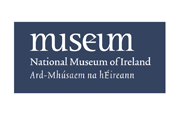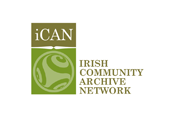Ireland has its fair share of heroes whose births, deaths and major achievements are regularly celebrated in story, song and television programmes. Yet, sometimes the great humanitarian achievements of others fall under the radar and are only remembered by a loyal few. One such hero is James Hack Tuke who dedicated his whole adult life to improving the distress of the poor and the destitute in the west of Ireland in the late 1800s.
However, here in Connemara, he has not been neglected and to commemorate the bicentenary of his birth a conference has been organised by the Heritage Office, Galway County Council in partnership with the Tuke Emigration Project Clifden Committee, the Tuke Emigration Project Oughterard Committee, Dr Gerard Moran and The Emigrants Commemorative Centre Carna, Co. na Gaillimhe.
Funded by Galway County Council, this unsung hero will be remembered on Fri 4th and Sat 5th of October at An tIonad Cuimhneacháin Eilimircigh, The Emigrants’ Commemorative Centre, Carna, Co. Galway.
The seventh son of Samuel Tuke and Priscila Hack, James Hack Tuke was born in York, England, on 13 September 1819, a prominent philanthropic Quaker family and tea merchants. As a young man he worked in this business and later as a partner in the banking firm, Sharples and Co. Related to the more well-known Ellis family through marriage, it was at the request of the Quakers that he was first sent to Ireland to review the famine situation between 1846-1848.
Haunted by the scenes of destitution that he saw, Tuke recorded it all in his letter addressed to the Central Relief Committee of the Society of Friends ‘A visit to Connaught in the autumn of 1847. He returned to Ireland in the spring of 1880 and found that the issues he had experienced during the Great famine had not gone away, that people on the western seaboard were still living at subsistence level in tiny holdings unable to support such huge numbers which he recorded graphically in Irish distress and its Remedies. He believed that one way to ease their plight was through assisted emigration. Bringing together a number of equally concerned people, the Assisted Emigration Scheme known as the ‘Tuke Fund’ was established in March 1882.
Tuke worked tirelessly to make sure every element of the scheme would work. He visited the US and Canada and sourced areas where the people would be welcome and would find employment. Then he set about interviewing prospective clients. It was a voluntary scheme, with whole families going. In that way, the holdings of those who stayed behind could be consolidated. The fund paid for their passage, gave them a set of clothes each, landing money on arrival and introductions to prospective employers. At least one member of the family had to be able to speak English and a number of the children needed to be of working age so they wouldn’t burden the countries they were going to.
Despite opposition, Tuke felt it was the only short-term solution to poverty and destitution in Connemara. He initiated the scheme in Clifden in 1882. The first Galway group of 201 left on the SS Austrian, departing from Galway Docks to Philadelphia on 28 April. The overall cost of the emigration in 1882 was £7,429, nearly all of the Tuke Committee’s available resources. According to Dr Gerard Moran, the Tuke Committee provided the funding in 1882, but it soon realised the magnitude of the task and in 1883 and 1884 secured government financial assistance for the scheme.
The success of that scheme saw the emigration of people from Recess, Letterfrack, Cleggan, Bunowen, Errislannan, Scanrive and Carna. Ships also left from Co Mayo bringing families from Swinford, Newport, Achill and Belmullet. While the scheme operated mainly between 1882-1884, approximately 6000 went from Connemara and 3,300 went from Co Mayo. According to Dr Gerard Moran, it resulted in 17% of the families in Clifden, Newport, Belmullet and Oughterard leaving. The total cost was £68,500, with the government subscribing £44,000 and the Tuke Committee providing the rest.
In 2014, the Oughterard Heritage Group undertook a project of researching and documenting information on the 196 townlands of the Oughterard Poor Law Union, stretching from Collinamuck on the shores of Lough Corrib to Golam on the western tip of Lettermullen to Lackavrea on the northern shores of the Corrib to Minna on Galway Bay. Their objective was to document as much information as possible in order to assist the descendants of emigrants to find their home place. This proved very successful when in January 2018, they received an email from Leslie in St. Paul, Minnesota whose great-great-grandparents William and Anne Flaherty from Camus with their children Dudley, Anne, Coleman, Bridget and Mary were part of the Tuke Assisted Emigration in 1883.
In June 2018, Oughterard Heritage group met with Leslie and presented her with a copy of the original ship’s manifest that her ancestors sailed on. Family names on the ships’ manifests are Gorham, Grealish, McDonagh, Connolly, Sullivan, Joyce, Lydon, Flaherty just to mention a few. The SS Austrian, SS Lake Winnipeg; the SS Lake Nepigon were the ships that sailed from Galway.
The conference will cover many aspects of Mr Tuke’s life and the social and economic conditions of the time as well as the stories from some of the descendants. The official opening is at 7.30 pm on Friday 4th October by Cllr Jimmy McClearn, Cathaoirleach of Galway County Council.
Dr Gerard Moran and Professor Christine Kinealy, Director of Ireland’s Great Hunger Institute, Quinnipiac University, USA will launch Bone Road (Arlen House) a collection of poetry by Geraldine Mills, whose great-grandparents emigrated from Belmullet to Rhode Island in 1883 as part of Assisted Emigration scheme. This will be followed by a lecture by Gerard Moran The response of a philanthropist of the famines of the 1880s: James Hack Tuke and his assisted emigration schemes’
The evening will close with music from local musicians Caitríona Ní Cheannabháin, Paul and Josie Canavan.
Saturday 5th is packed with an array of interesting events starting with the launch of Dr
Gerard Moran’s publication Fleeing from Famine in Connemara by Professor Christine Kinealy.
Professor Christine Kinealy will continue the morning with her lecture ‘Living skeletons: James
Hack Tuke and the Great Famine in the west of Ireland’ Another talk of great value will be
‘Delving into the records; a glimpse at some of Galway County Council Archives’ sources” by Patria McWalter.
‘The Family Stories’ section will include personal stories, photographs and videos to include Paul Wright’s “Tuke’s Assisted Emigration Fund”. The Blacksod Bay perspective will be highlighted by Rosemarie Geraghty from Eachléim Heritage Centre Belmullet, Co Mayo
“Revealing Connemara: the photographs of Major Rutledge Fair” by Sara Smyth should be of immense interest to locals and visitors alike in a conference that will surely honour the life of James Hack Tuke.
For enquiries relating to registration, please contact Gráinne Smyth, Forward Planning, Áras an Chontae, Galway County Council, Prospect Hill, Galway, Ireland. Tel: 00353 91 509121. Email: gsmyth@galwaycoco.ie
Further enquiries to Ms. Marie Mannion, Heritage Officer, Forward Planning, Áras an Chontae, Galway County Council, Prospect Hill, Galway. Tel: 00353 91 509198/087 9088387 or E-mail: mmannion@galwaycoco.ie









No Comments
Add a comment about this page